Find it challenging to get enough good sleep each night? Are your sleep habits proving harmful to your sleep quality? All the preparatory habits before sleep from optimizing your sleep schedule to evaluating your bedroom environment, are called sleep hygiene. It means some specific actions that influence the quality of your sleep are considered as sleep hygiene that affect all areas of your life because in case of disturbance in any of the routine preparatory actions, your sleep may be disturbed and this sleep disturbance ultimately impacts your daily chores and quality of your working efficiency as well. So, Online Health Point is providing you with a complete guide to save your sleep by following the 10 Healthy Sleep Hygiene Tips that may affect your sleep positively. These tips help to make it easier to fall asleep and wake up feeling well-rested. Some steps to improve your sleep habits are also suggested.
Establish A Consistent Sleep Schedule
A healthy sleep routine may help you to promote a quality sleep schedule but the most necessary thing is the regular sleep of 7 to 8 hours per day i.e. out of 24 hours a healthy adult must sleep for 7 to 8 hours. Your mind and body need an accustomed sleep routine but some factors disrupt this regular sleep pattern that ultimately alternate your bedtime and wake time damaging your circadian rhythm. Applying healthy sleep hygiene tips is an influential way to resolve this sleep inconsistency.
Set A Regular Bedtime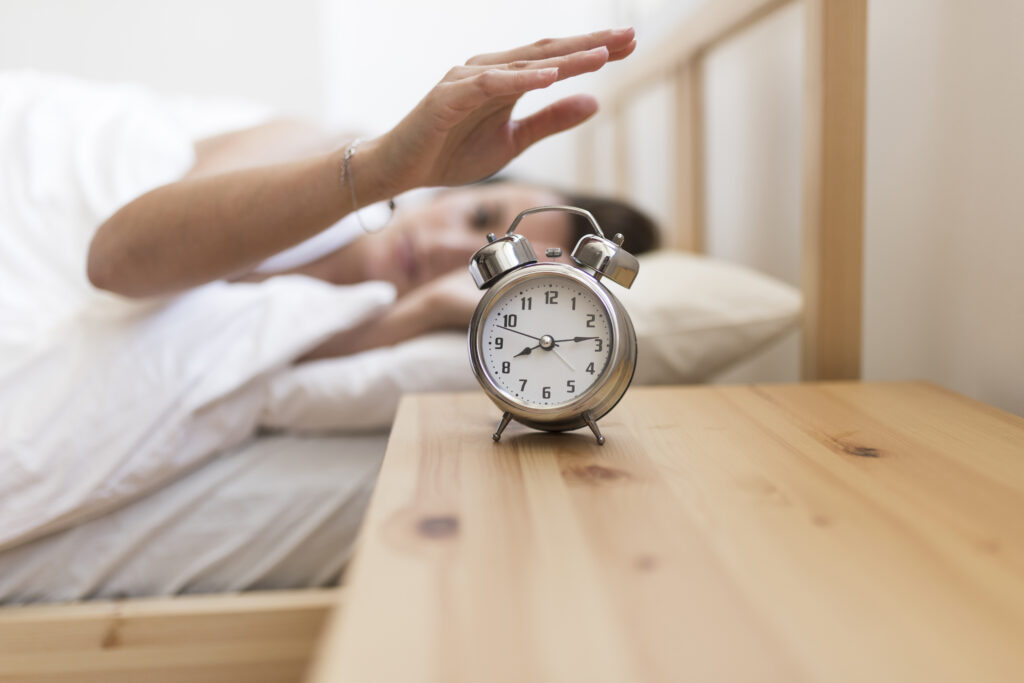 Waking up or going to bed at different times is hazardous for your sleep quality. To resolve this issue, set your alarm for the same time each day so that your body and mind get accustomed to healthy sleep hygiene. Choose a bedtime and stick to it. This is the first preparatory action to have a good quality sleep.
Waking up or going to bed at different times is hazardous for your sleep quality. To resolve this issue, set your alarm for the same time each day so that your body and mind get accustomed to healthy sleep hygiene. Choose a bedtime and stick to it. This is the first preparatory action to have a good quality sleep.
Wake Up at the Same Time Every Day
To make your sleep routine better the second step you must take is to wake up at the same time each day. For this you will have to keep a strict check on your naps and keep your nap time around fifteen to twenty minutes. then come to your bedtime and make a habit of relaxing yourself a maximum of thirty minutes before falling asleep. Listening to music, reading a good book or relaxing exercises may be some best techniques to get relaxed before going to bed.
Optimize Your Sleep Environment
Having an optimized environment in your bedroom is preferred for comfortable sleep. This feature is vital for supporting good quality sleep hygiene. So invest in articles that add a soothing effect to your bedroom to help maintain a comfortable bedding, blanket, and temperature during the night.
Keep Your Bedroom Dark and Quiet
Blocking out the light from your bedroom will enhance comfort and peace because excess light exposure during bedtime throws off your sleep and disrupts your circadian rhythm. Using blackout curtains over your windows or a sleep mask over your eyes helps you prevent light from interfering with your rest mode. The absence of bright light increases the production of the Melatonin hormone that promotes sleep and compels your body and mind to have sleep.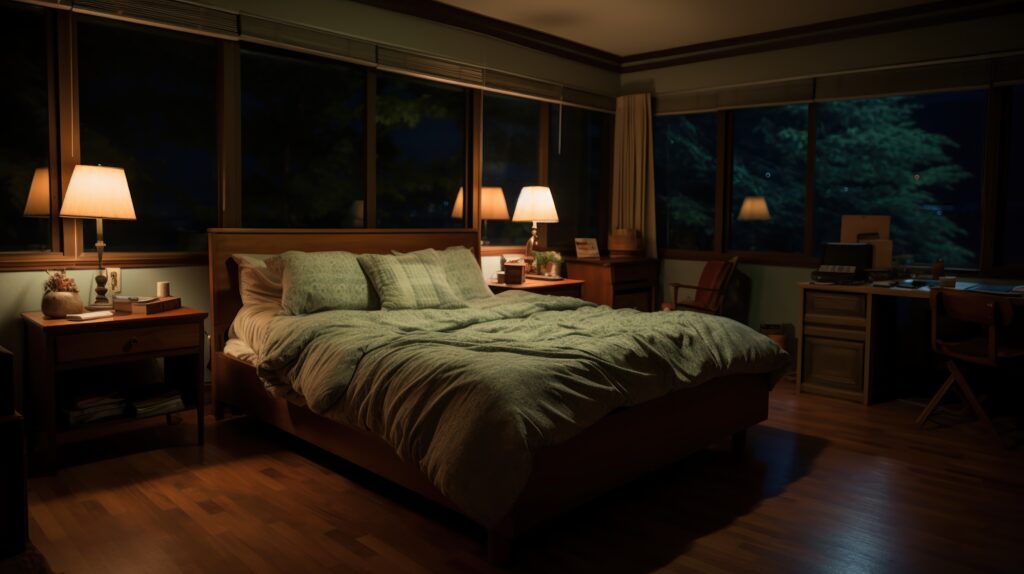 Maintain a Comfortable Room Temperature
Maintain a Comfortable Room Temperature
Setting the thermostat to 65 to 70 degrees Fahrenheit plays a crucial role in adding good quality sleep to your life. This is the ideal temperature and may vary according to outside temperature but a healthy individual feels comfort at this. Research supports a cooler environment for better sleep hygiene. Too hot or too cold temperatures may distract your sleep.
Prioritize Physical Activity
Incorporating a healthy exercise routine into your life will ensure solid sleep. It has many benefits for the health of the body and mind. It brings energy variations in your body that promote healthy sleep hygiene in your bedtime routine. Medical experts advise avoiding intense exercise near bedtime but a light exercise during the day will support your circadian rhythm. Exercise before bedtime will excite your body systems and it would fail to settle down for a peaceful sleep.
Exercise Regularly, But Not Too Close to Bedtime
Exercise before bedtime is discouraged by the experts because it will make it tough for you to fall asleep easily. Modern studies do not completely support this hypothesis and suggest completing your workout at least two hours before sleep time. Just before bedtime, strenuous activity impacts your sleep negatively. So avoid running, lifting weights, or HIIT before sleep time.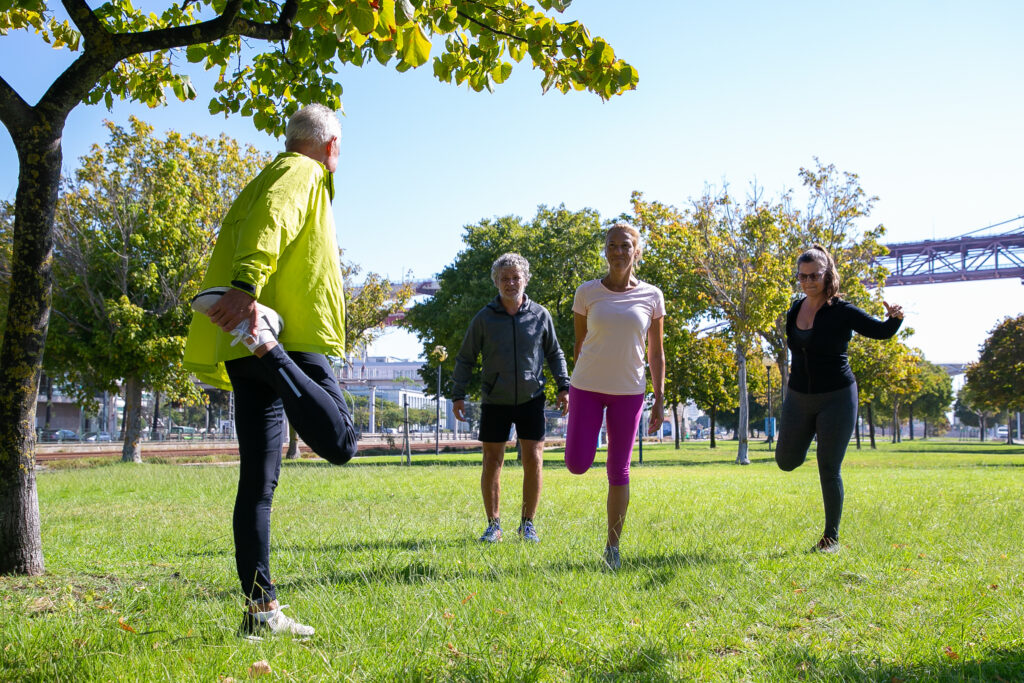 Incorporate Relaxing Activities into Your Day
Incorporate Relaxing Activities into Your Day
The best time to get strenuous exercise is the time of being active i.e. daytime or early in the morning. And the most important is being regular in this regard. Regular relaxing physical activities during this time promote your health by reducing anxiety and maintaining your internal temperature. It also promotes better sleep hygiene.
Watch Your Diet and Hydration
If you are struggling to get a good night’s sleep, you must know the hydration level of your body. Dehydration or an imbalanced diet has negative impacts on your sleep quality. You will diagnose dehydration by some symptoms such as dry mouth, lack of sleep, and headaches.
Avoid Heavy Meals and Caffeine Before Bed
Avoid having a lavish or hearty dinner because it will put stress on your stomach and you will get disrupted sleep due to the digestion process continued in your alimentary canal due to having a heavy meal at night. To keep such a disruption at a minimum level, have a light dinner and avoid spicy or fatty foods at night. Similarly limit caffeinated drinks like sodas, tea, or coffee. These popular beverages are used to jolt of energy to overcome daytime sleepiness but if used in excess, they cause sleep deprivation and perform a role of barrier to fall asleep.
Stay Hydrated Throughout the Day
 Drinking enough water during the day and drinking water before bed according to your healthcare advisor eliminate the disruptive effects of dehydration. A well-hydrated body functions optimally and helps to restore chemical balances that promote a restful sleep at night. But if you don’t drink enough water, this causes feelings of fatigue and sleep deprivation. Inadequate fluid intake disturbs your sleep-wake cycle which makes it difficult for you to fall asleep easily.
Drinking enough water during the day and drinking water before bed according to your healthcare advisor eliminate the disruptive effects of dehydration. A well-hydrated body functions optimally and helps to restore chemical balances that promote a restful sleep at night. But if you don’t drink enough water, this causes feelings of fatigue and sleep deprivation. Inadequate fluid intake disturbs your sleep-wake cycle which makes it difficult for you to fall asleep easily.
Limit Screen Time Before Bed
Disconnect all devices a minimum of an hour before bedtime because mobile phones, laptops, and tablets suppress your natural production of sleep hormones, Melatonin. This deficiency keeps your brain weird which makes it difficult to sleep early. Reduce Exposure to Blue Light
Reduce Exposure to Blue Light
Electronic devices such as tablets, laptops, and smartphones emit blue light that causes excessive mental stimulation and badly affects the circadian cycle. Keep your screen time shorter so that you may avoid this blue light. Using a mobile phone near bedtime will ruin your sleep hygiene and you will not be able to have a good quality sleep at all.
Use Night Mode on Devices
Light coming from electronic devices affects your sleep so turn down the brightness so that its bad impacts may be put down. These devices have night mode settings, use these settings to reduce the amount of blue light that will help to maintain melatonin production for good sleep.
Manage Stress and Anxiety
Have you ever experienced a sleepless night? Sleepless nights and anxiety have a close link. Sleep experts declared that the more stress, more will be the sleepless nights i.e. these two are in direct proportion and if the sleepless nights are frequent you will lose your circadian rhythm. Difficult situations, pain, or worries add anxiety to your life. Stress hormone production increases and you lose your sleep-wake cycle. So apply some relaxing techniques to keep stress/anxiety away.
Practice Stress-Relief Techniques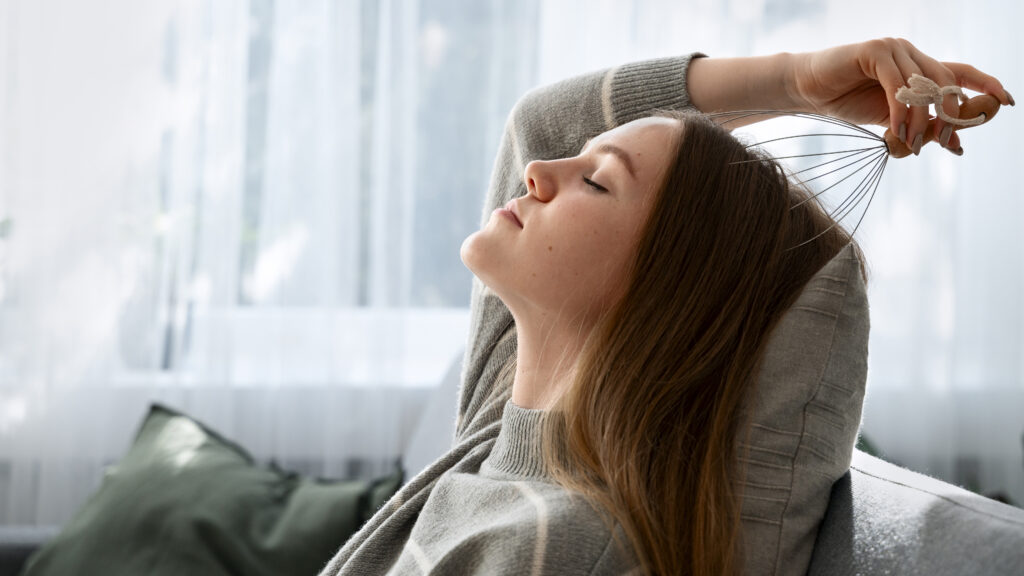 During the phase of anxiety, your body and mind need activities that activate your natural relaxation response. These relaxing techniques are proven influential sources to improve your sleep. These activities reduce the production of stress causing hormones Cortisol and Adrenaline to slow down your breathing rate and heart rate. So that you may feel calm. These relaxing techniques include:
During the phase of anxiety, your body and mind need activities that activate your natural relaxation response. These relaxing techniques are proven influential sources to improve your sleep. These activities reduce the production of stress causing hormones Cortisol and Adrenaline to slow down your breathing rate and heart rate. So that you may feel calm. These relaxing techniques include:
- Gentle breathing.
- Muscle stretching.
- Mindfulness Meditation.
- yoga.
Consider Therapy or Counseling
Cognitive Behavioral Therapy for Insomnia is considered an effective therapy for better sleep. This is the form of therapy that helps you to identify poor sleep and its causes. It also helps you to replace unhealthy sleep nights with peaceful sleep nights by removing stressed thoughts from your mind. This is a matter of the health of your body and mind therefore, consult your healthcare provider in case of consistent triggering issues.
Create a Comfortable Sleep Environment
A good night’s sleep is directly linked with your surroundings and the happenings around you. So try to keep your environment calm and cool while going to bed. This will affect your sleep quality positively. The most influencing factors are temperature, noise aroma and the most crucial is your bedding.
Invest in a Quality Mattress and Pillows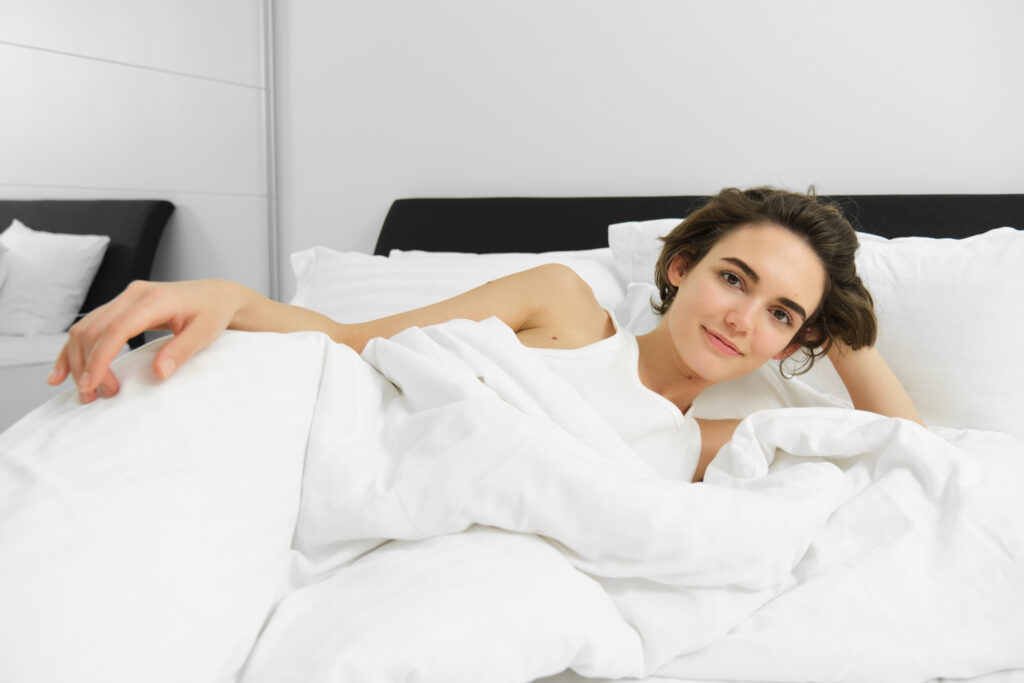 A soft, comfortable, and cool bedding is the super feeling after spending a long busy day. Quality mattresses, pillows, and bed sheets help you to fall asleep easily and you feel a nice hug while getting into the comfortable soft bedding. You can also use soft lightweight blankets to have a comfy feeling at night.
A soft, comfortable, and cool bedding is the super feeling after spending a long busy day. Quality mattresses, pillows, and bed sheets help you to fall asleep easily and you feel a nice hug while getting into the comfortable soft bedding. You can also use soft lightweight blankets to have a comfy feeling at night.
Use Blackout Curtains or Eye Masks
Use blackout curtains and eye masks for a darker environment because studies show that the sleep hormone Melatonin gets more production in the dark. This hormone creates a tendency to fall asleep with relaxed feelings.
Wind Down Before Bed
After a hectic day, we all want to have comfy sleep at night but sometimes transitioning from a busy day to a peaceful night is difficult. Then we need a gentle nudge for our body and mind to convey a message of relaxation. This can be done through wind-down. Wind-down activities support your body and mind to move towards rest.
Engage in Calming Activities
Wind-down routine is a set of activities that help relax your body and mind before sleep. For instance, making it possible to stop using electronic devices a minimum of 2 to 3 hours before bedtime. Stay away from mobile and laptop before bedtime. This cutting down of screen time will create a signal that compels your body and mind to get into the bed for a calming sleep and you are drifting to dreamland swiftly and easily.
Read or Listen to Relaxing Music Reading a good book or listening to calming music before bedtime are good wind-down activities that promote better sleep hygiene. These techniques release stress from a hectic day and improve your memory. Moreover, muscle stretching exercises and deep breathing are also effective wind-down activities to make your mood better and relaxed.
Reading a good book or listening to calming music before bedtime are good wind-down activities that promote better sleep hygiene. These techniques release stress from a hectic day and improve your memory. Moreover, muscle stretching exercises and deep breathing are also effective wind-down activities to make your mood better and relaxed.
Limit Alcohol and Nicotine
Alcohol and nicotine are stimulants that act on your physical and mental health. You unconsciously use these drugs in your diet in daily life including tea, cola, coffee, and chocolate. But in the form of food, you don’t take them as drugs, thus these drugs disrupt your sleep quality by making it harder to go to sleep and induce sleepless nights into your routine.
Avoid Alcohol Close to Bedtime
You think that alcohol makes you sleepy but it disrupts your sleep. Using alcohol near bedtime is associated with awakening after the second half of the night, nightmares, headaches, and night sweats. All these factors disrupt your sleep quality and affect the level of Melatonin. So stop drinking alcoholic beverages at least 5 hours before going to sleep. Quit Smoking or Vaping
Quit Smoking or Vaping
Many of you use cigarettes to get relaxed and have a peaceful sleep but you don’t know the adverse effects of smoking. Smoking is hazardous to your overall health, especially for sleep hygiene. Cigarettes contain nicotine that acts as a stimulant to make you stay awake. So it is better to avoid smoking.
Seek Professional Help if Needed
It’s your basic necessity to have a good night’s sleep. But if you are facing problems regarding sleep quality you must follow sleep hygiene tips to overcome these problems because poor sleep, either frequent or occasional lowers your efficiency and cognitive abilities. It adversely affects your quality of life. So seek professional help if needed because you will be glad to hear that sleep disorders can be treated with medications and correct diagnosis.
Consult a Sleep Specialist if Sleep Issues Persist
Eager to know about the correct time to talk to your doctor about sleep disorders. You must discuss your sleep disorder with your doctor if
- You feel continuous trouble falling asleep at night
- Cannot stay asleep through the whole night
- Awake after the second half of the night and feel restlessness
- You don’t feel fresh after waking up
- You find it difficult to perform your duties during the day due to sleepy feelings.
Explore Medical Solutions for Sleep Disorders
Sleep hygiene tips are the better source to solve sleep-related problems but if the symptoms remain persistent and sleep hygiene tips do not work then this issue will be treated by medication. Here is a list of some drugs/medications that are considered best for the treatment of sleep disorders.
To cure restless feelings in limbs, especially in legs, Anti-Parkinson’s Drugs are used.
Short-term insomnia is treated with Benzodiazepine drugs, known as hypnotics.
Long-term insomnia is treated by injecting a melatonin receptor stimulator.
Antidepressants are used to treat sleepless nights syndrome but drowsiness is the side effect that makes them harmful for day time activities.
Conclusion
Healthy sleep habits include your behaviors regarding sleep both during daytime and bedtime and they affect your sleep quality. Feeling difficulty in falling asleep or staying asleep at night may be the result of different unhygienic sleeping habits such as excessive use of caffeine, alcohol, smartphones, or heavy meals close to bedtime. Sleep quality is also disturbed due to the uncomfortable environment of the bedroom and noisy surroundings.
But the good news is that all these factors can be controlled to set an optimized environment and lifestyle for improving sleep quality. You can support your sleep-wake cycle by incorporating sleep hygiene tips into your daily life, as discussed in this article.







